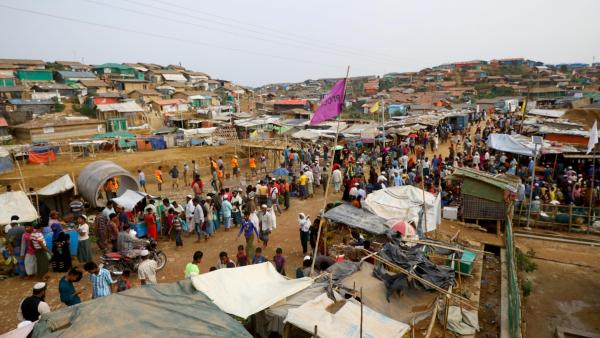French Film Displays the Brutality on Rohingya Community

![]()
News Desk
A new French film, Mechanics of a Crime, displays the brutality on Rohingya community. It has been revealed that hundreds of thousands of Myanmar’s Muslim ethnic minority were forced to flee in a military-led crackdown, their persecution was premeditated. It comes as thousands of Rohingya refugees in Bangladesh.
Gwenlaouen Le Gouil, the director of the film Mechanics of a Crime explains that he tried to tell this story, the Rohingya story, what’s been happening to these people for almost ten years”. His investigation began in 2012, five years before Myanmar’s “ethnic cleansing operations” against the Rohingya began, and already then anti-Muslim sentiment was decaying in Yangon, which the documentary highlights. It follows the rise of Ashin Wirathu, a radical Buddhist monk, who travels the country whipping up crowds against Myanmar’s Muslim minority through his hate-filled sermons.

The first reports of Rohingya homes being torched by Buddhist villagers begin to emerge in 2012, with news that survivors had been sent to open air prisons. The events are presented like a news story to capture the spectator’s attention.
The director wants to let people know in Europe, and in France, what’s going on in this area. Many of the western people don’t know exactly what’s going in Burma, in Southeast Asia.
Le Gouil interviewed a good number of Rohingya refugees who fled Myanmar to Bangladesh; United Nations describes this brutal event as a “textbook example of ethnic cleansing”. The worst of the violence broke out in August 2017 when a Rohingya militant group attacked several police posts with rudimentary weapons. The army justified the subsequent crackdown as a means of rooting out the insurgents. Le Gouil, thinks that the identity of the attackers remains as a mystery who had no guns, only sticks or knives. At one point in the film, Le Gouil took an effort to document the evidences of violence carried out against the Rohingya community. The film also analyses the failure of the international community to intervene, reserving a harsh spotlight for Aung San Suu Kyi, Myanmar’s de facto leader and Nobel peace laureate.
Le Gouil said, the Rohingya are very upset with Aung San Suu Kyi because they had a feeling what happened two years ago, could not have happened because of this lady, unfortunately, just to get into power, she didn’t do anything. At that time, she let the generals do the job, a bad job. UN investigators are evaluating whether Suu Kyi should be legally implicated in the abuses against the Rohingya for complicity. A fact-finding mission last year branded the army operation in August 2017 as “genocide” and called for the prosecution of top generals, including army chief Min Aung Hlaing.